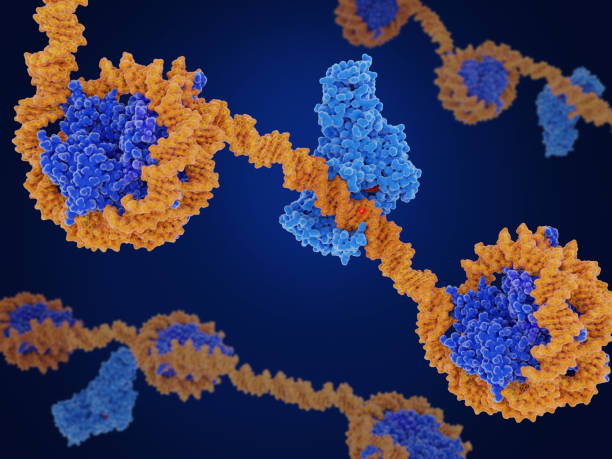Understanding DNA Testing: How Genetic Analysis Works
DNA testing has transformed how we understand genetics, health risks, and ancestry. Genetic testing, also known as DNA testing, is used to identify changes in DNA sequence or chromosome structure. Whether you're curious about inherited conditions, family history, or personal health insights, DNA tests offer a window into your genetic makeup. This article explores the science behind genetic testing, how it works, and what you need to know before taking a test.

DNA testing has become increasingly accessible and popular in recent years, offering individuals valuable insights into their genetic information. From understanding potential health risks to tracing ancestry, genetic testing provides detailed analysis of your unique genetic code. As technology advances, these tests have become more affordable and comprehensive, making them a practical option for many people seeking to learn more about their biological blueprint.
What Is Genetic Testing and Why Is It Used?
Genetic testing, also known as DNA testing, is used to identify changes in DNA sequence or chromosome structure. These tests analyze your genetic material to detect variations that may indicate inherited conditions, predispositions to certain diseases, or other genetic traits. Medical professionals use genetic testing for various purposes, including diagnosing genetic disorders, assessing disease risk, determining treatment options, and providing reproductive planning guidance. Beyond medical applications, DNA testing has expanded into ancestry tracing and paternity determination. The technology examines specific genes, chromosomes, or proteins to identify mutations or alterations that could affect health or provide information about biological relationships and heritage.
How Does DNA Testing Work?
The process of DNA testing involves collecting a biological sample, typically through a cheek swab, saliva sample, or blood draw. Once collected, the sample is sent to a laboratory where technicians extract DNA from the cells. Using advanced sequencing technology, scientists analyze specific regions of your DNA, looking for variations or mutations in genes, chromosomes, or proteins. Different types of tests examine different aspects of your genetic code. Some tests look at single genes associated with specific conditions, while others perform comprehensive genome sequencing that examines thousands of genes simultaneously. The laboratory compares your DNA sequences against reference databases to identify any significant variations. Results are then interpreted by genetic counselors or healthcare professionals who can explain what the findings mean for your health or ancestry.
Types of DNA Tests Available
DNA tests (gene testing) are medical tests that can identify changes (variations) in your genes, chromosomes and DNA. Several categories of genetic testing serve different purposes. Diagnostic testing confirms or rules out suspected genetic conditions when symptoms are present. Predictive and presymptomatic testing identifies gene mutations that increase risk for developing certain diseases before symptoms appear. Carrier testing determines if someone carries a gene mutation that could be passed to children. Prenatal and newborn screening tests check for genetic disorders during pregnancy or shortly after birth. Pharmacogenomic testing helps doctors determine which medications and dosages work best based on your genetic makeup. Direct-to-consumer ancestry tests analyze DNA to provide information about ethnic background and family lineage, though these typically offer less medical insight than clinical genetic tests ordered by healthcare providers.
Understanding Your DNA Test Results
Interpreting genetic test results requires careful consideration and often professional guidance. Results typically fall into three categories: positive, negative, or uncertain. A positive result means a gene mutation was found, though this doesn’t always guarantee disease development. A negative result indicates no mutation was detected in the genes tested, but it doesn’t eliminate all genetic risk. Uncertain or variant of unknown significance results mean a genetic change was found but its impact on health isn’t yet understood. Genetic counselors play a crucial role in helping individuals understand what their results mean for themselves and family members. They can explain the likelihood of developing certain conditions, discuss prevention strategies, and provide emotional support. It’s important to remember that genetic testing has limitations and cannot predict all health outcomes, as environmental factors and lifestyle choices also significantly influence health.
Privacy and Ethical Considerations
Before undergoing DNA testing, it’s essential to understand privacy implications and how your genetic information will be used and stored. When using direct-to-consumer testing services, carefully review privacy policies to learn whether your data might be shared with third parties, used for research, or sold to pharmaceutical companies. Some people worry about genetic discrimination, though laws like the Genetic Information Nondiscrimination Act (GINA) in the United States provide some protections against discrimination in health insurance and employment based on genetic information. However, these protections don’t extend to life insurance, disability insurance, or long-term care insurance. Consider discussing your concerns with a genetic counselor before testing, especially if results might impact family members who may also carry identified mutations. Ethical questions about genetic testing continue to evolve as technology advances and our understanding of genetics deepens.
Making Informed Decisions About Genetic Testing
Deciding whether to pursue genetic testing is a personal choice that depends on individual circumstances, family history, and health concerns. Before ordering a test, consult with your healthcare provider or a genetic counselor to determine which type of testing, if any, is appropriate for your situation. Consider your reasons for testing and how you might respond to different results. Some people find genetic information empowering, allowing them to make proactive health decisions, while others may experience anxiety about potential risks. Insurance coverage for genetic testing varies depending on the type of test and medical necessity, so verify coverage with your insurance provider beforehand. For ancestry or non-medical testing, weigh the benefits of the information against privacy concerns and cost. Remember that genetic testing is a tool that provides information, but it doesn’t define your health destiny or diminish your worth as an individual.
This article is for informational purposes only and should not be considered medical advice. Please consult a qualified healthcare professional for personalized guidance and treatment.




